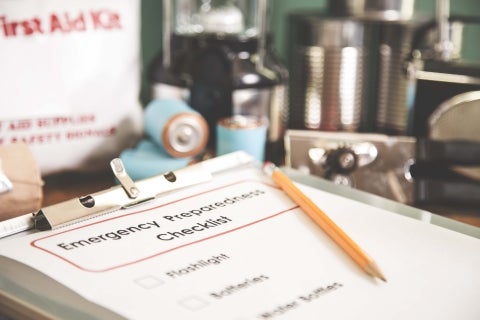
June is National Safety Month and our Hillcrest Safety Manager, Bobby Benn, would like to remind everyone “Emergency Preparedness is a part of safety and ultimately each of you is responsible for helping make sure that the places where you live and work are ready for whatever happens”.
1. Be mindful of the different kinds of disasters so that you can always be prepared. Psychology is a key factor for survival, so being mentally and emotionally prepared increases your odds for survival.
2. Try not to panic. You will likely experience fear during an emergency, but good planning with factual information from credible agencies will help you respond more effectively.
3. Know your limits. Understanding any physical limitations, resources and medical or dietary needs helps you create a custom survival plan for you and your family.
4. Act: Physically prepare and rehearse your plan; and don't be afraid to modify it as your needs change.
5. Learn how to do more with less. If a disaster causes your electricity or gas to go out, you may need to know how to improvise with what you have on hand. Tent camping is a good example of learning to survive with the essentials.
6. Keep it simple. Preparedness plans and survival gear should be practical for real-life scenarios. The important thing is to test and practice with what you plan to use.
7. Be aware of your local threats both natural and manmade. Understand safe routes or places to go.
8. In the event you are forced to leave your home, create a mobile emergency kit(s) for you and your family. Keeping one at work is helpful in the event a disaster scenario occurs while you are at work.
9. Do the W.I.S.E. (Working to Innovate Safety Education) thing. Once your family is prepared, share your plans with co-workers and neighbors - it is easier when everyone is on the same page.
10. Revisit your plan. As your family and work situations change, make sure your plan remains appropriate. Also check your supplies such as batteries, medications or food, to make sure they are not expired.
Being prepared reduces stress and makes it easier to enjoy life.
